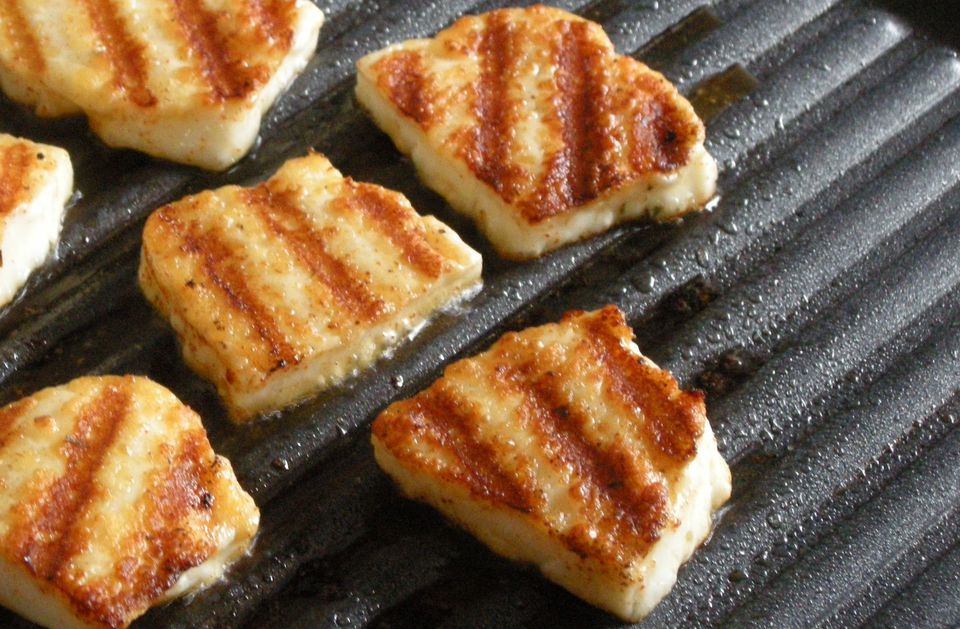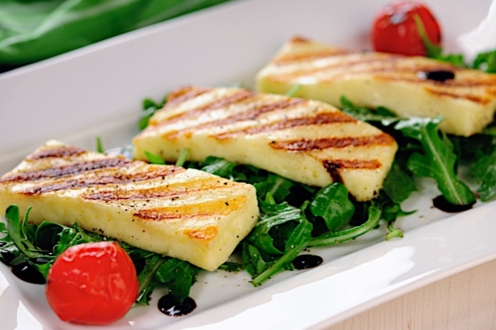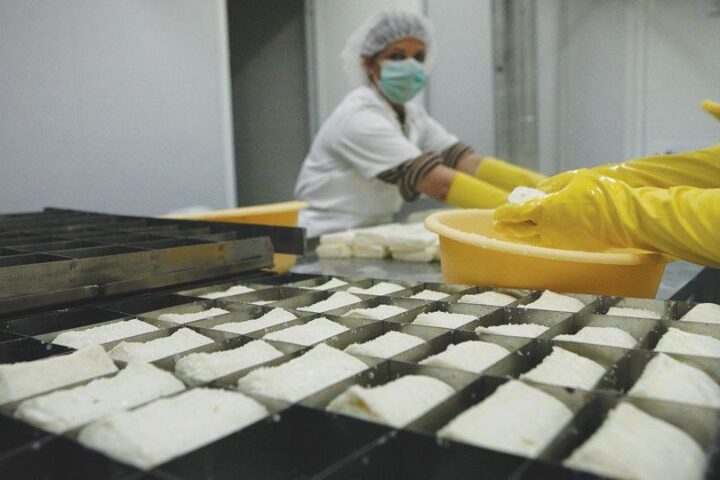Cyprus’ flagship halloumi export had its best year in 2020, but demand has crumbled with lockdowns imposed across Europe to combat the second wave of coronavirus crippling the hospitality sector.
Dairy farmers in Cyprus have begun to see their produce pile up in warehouses, as they rush to equip their factories with deep freeze refrigerators to store the squeaky cheese produce.
Cyprus cheesemakers are concerned over the prolonged second wave of infections and high death rate in the UK, the country’s largest halloumi market because the UK government has instructed people to stay home, closing restaurants and bars.
Last year ended with halloumi generating a whopping €260 mln from exports of 40,000 tonnes, yielding €115 mln from 17,000 tonnes sold to the UK importers.
That made 2020 the best year on record for halloumi exports.
With the UK being Cyprus’ biggest market for its traditional cheese, with 45% of exports heading for supermarket shelves and restaurants in Britain, cheesemakers are placing their bets on the country’s vaccination program.
It is hoped that the relaxation of measures in the coming months will allow them to offload their stock sometime in spring or summer.
President of the Dairy Producers Association George Petrou told the Financial Mirror they had to buy industrial refrigerators to store large quantities of unexported halloumi.
“Following a record year, we were more concerned of Brexit causing us problems when we were looking ahead to 2021…the coronavirus has brought about more serious challenges,” said Petrou.
He explained that with the implementation of Brexit, the only substantial change from January 1, 2021, for Cypriot and EU products in general, especially food, is that they are subject to different health control and customs clearance procedures.
“In other words, this is an additional bureaucratic process that does not stop the dynamics of the traditional Cypriot cheese in Great Britain…the coronavirus crisis is producing obstacles.”
Petrou said that producers are relying on vaccination programs in the UK and other EU countries, hoping that by March, things will improve, and markets will open up.
“We had a similar problem last year with lockdowns in Europe in March, but our exports took off in the summer months when people could have barbeques and home visits were allowed.”
Halloumi mountain
He said if measures start to be lifted by the end of January or in February, exporters will not face any serious issues.
They will be able to export before building up a stockpile that they will not be able to shift without lowering prices.
“If measures continue for more than three months, then stocks will begin to pile up as dairy producers cannot simply stop making halloumi.”
Petrou said there is a commitment by dairy producers to buy milk produced by cattle breeders, following a deal with the government not to push for an increase in goat or sheep milk in the halloumi mix.
In the previous years, dairy producers and the Ministry of Agriculture put pressure on cow and sheep breeders to increase milk production to meet halloumi demands.
An Agriculture Ministry source said livestock breeders cannot simply stop producing milk, as production needs to be planned months in advanced.
“Storing halloumi in deep freeze refrigerators will increase costs significantly, by the time we are finally able to export our products,” the source said.
Anything that cannot be sold within a month, will have to go into deep freeze as halloumi has a life span of six months, said Petrou.
“We hope to see some sort of normality return in the upcoming months or the task of offloading halloumi stocks will become harder with producers selling below cost, taking severe financial hits.”
He said it was too early to calculate losses if exports don’t take off anytime soon.
No state help
Petrou said that dairy producers were “disappointed” with the government’s stance.
“Not only have they not chipped in to support dairy producers financially, but they are also pressuring us to absorb the increased sheep milk in the market,” said Petrou.
Government, dairy producers, and cattle breeders are divided on the description of the white cheese.
They do not see eye-to-eye over how much sheep and cow milk should be used in the halloumi mix.
According to its EU Protected Designation of Origin (PDO) file, producers must increase the ratio of goat and sheep milk in the squeaky cheese to 25%-75% respectively from 2021.
The government wants to increase the ratio before 2024 when producers must follow the PDO guidelines, using at least 51% of sheep’s and goats’ milk, according to the traditional recipe.
After negative reactions from cattle farmers and dairy producers, the government-backed down, agreeing to keep the ratio of goat and sheep milk to cow milk at 20-80%.
A government source confirmed to the Financial Mirror that the ministries involved, Commerce and Agriculture, are aware of the hardships faced by dairy producers and cattle breeders and looking into ways of helping them.
“One of the things we are currently looking into is whether there is excess milk in the market. At first glance, there seems to be an excess of cow’s milk,” confirmed the source.
Meanwhile, in the UK, a source close to halloumi importers told the Financial Mirror that although imports catering mainly to supermarket chains have not been severely affected, they are concerned over an overall drop and mounting halloumi stocks in Cyprus.
“We have heard that local producers have all bought deep freezers to store their products, as Halloumi stocks build up.
“This could cause halloumi prices in the future to plunge, inflicting damage to all stakeholders in Cyprus’ traditional cheese business.
“Let’s not forget that halloumi is considered to be a premium product here in the UK,” said the UK source.
Halloumi faces uncertainties over Brexit while Cyprus is still trying to register the cheese as a PDO product.
Registering halloumi as a product of protected designation of origin has languished for over six years in EU corridors due to Cyprus problem politics with Nicosia, at times, firing at the European Commission for the delay.
“Halloumi is protected to some extent as it is a registered trademark in the UK, but as all trade deals with EU member states are made collectively through the European Union, registering halloumi as a PDO carries its own weight,” said the UK source.










